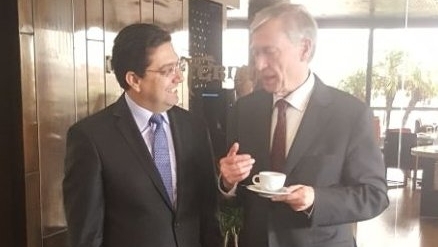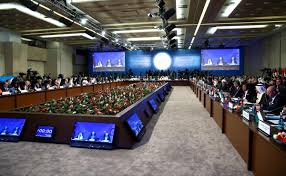The continuous sound cooperation between Spain and Morocco in matters of security and counterterrorism led to the dismantling of what the Spanish Media RTVE described as the “largest jihadist structure in Spain” in the area of recruiting young people on social networks.
According to the media, the operation has resulted in the arrest of two people in Zamora and Valencia, who have already been remanded in custody at the request of the Public Prosecutor’s Office for alleged crimes of membership of a terrorist organisation, indoctrination and recruitment of minors, as well as managing a private group with dozens of users from more than 10 Spanish provinces.
This new blow to jihadism has been possible thanks to the joint action of the Information Service of the Guardia Civil of Spain and the Direction Générale de la Surveillance du Territoire (DGST) of Morocco and highlights the importance of the bilateral partnership between the two countries to face a common enemy.
The Guardia Civil began investigating in 2022 the two detainees who, despite being in different Spanish provinces, operated in a coordinated manner to recruit and indoctrinate young people in jihadism through social networks. This indoctrination was aimed, above all, at 18-year-olds and minors. To do so, the detainees used the main social networks used by people in that age range.
The collaboration between the DGST and the Spanish Civil Guard’s Information Service (SIGC) has been ongoing since the middle of the previous year. The agencies worked together to target the Jihadist organization operating within Spain, with two of its key members presented before the Spanish judiciary on Friday.
The modus operandi of the two Jihadis involved the public dissemination of detailed terrorist content, specifically designed to identify and attract vulnerable individuals to extremist ideologies. These individuals were then enticed to join a private group, skillfully run by the two detainees, where dozens of users were identified across various Spanish provinces.
Furthermore, in addition to carrying out virtual activities, investigations have detected graffiti in the streets praising the Daesh terrorist group, such as ‘Dawlat al islam baquiyah’, which means ‘Islamic State remains and expands’.
The alarming activities of the detainees were primarily directed at influencing children under the age of 18, with a clear intention to initiate them into radicalization processes through a well-calibrated multi-platform strategy, primarily reliant on social media.
The private group administered by the suspects served as a hub for disseminating audiovisual content, messages, and slogans, specifically tailored to attract and radicalize new followers. Moreover, the two detainees took the initiative to edit and translate Arabic-language Islamic State content into Spanish, with the aim of reaching the young Spanish-speaking population.
Jihadist recruiters, known for targeting vulnerable youths, employ various strategies to spread their radical ideologies. They exploit the impressionability of young minds, engaging in recruitment efforts not only through online platforms but also in public spaces such as parks, cultural venues, and online forums.



